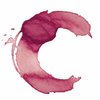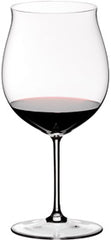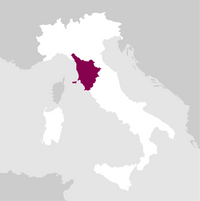Description
The first Haiku vintage was in 2009 and the wine is a blend of 3 varieties: 50% Sangiovese, and 25% each of Cabernet Franc and Merlot. During the planting of the second section of the Montebuoni vineyard, completed in 2001, it was decided to experiment with the renowned International variety, Cabernet Franc, which Ama had never used.
Details

Perfume

Color

Taste
Serve at:
18 - 20 °C.
Longevity:
10 - 15 years
Decanting time:
1 hour

Pairings
- Start up year: 1976
- Oenologist: Marco Pallanti
- Bottles produced: 320.000
- Hectares: 75
To date, Castello di Ama owns and manages about 75 hectares of vineyards and 40 hectares of olive groves, relying on the work of more than 60 people. The role of general manager and oenologist is held continuously by Marco Pallanti, who served, between 2006 and 2012, as President of the Chianti Classico Consortium, bringing the contribution of the creation of the 'Gran Selezione' category with the aim of highlighting the extraordinary quality and diversity of the region's wines. Read more


| Name | Castello di Ama Haiku 2016 |
|---|---|
| Type | Red green still |
| Denomination | Toscana IGT |
| Vintage | 2016 |
| Size | 0,75 l |
| Alcohol content | 13.5% by volume |
| Grape varieties | 50% Sangiovese, 25% Cabernet Franc, 25% Merlot |
| Country | Italy |
| Region | Tuscany |
| Vendor | Castello di Ama |
| Origin | Gaiole in Chianti (Siena). |
| Climate | Altitude: 508–420 m. a.s.l. Exposure: North East - South West. |
| Soil composition | Clay and limestone. |
| Cultivation system | Merlot and Cabernet Franc as vertical trellis, single Guyot; Sangiovese as spurred cordon. |
| Plants per hectare | 5,200. |
| Wine making | Fermentation induced by indigenous yeasts and separated by variety in steel vats at a controlled temperature of between 30° and 32°C, with manual pumping over and a total stay (cuvaison) of 25 days for the Sangiovese, 25 days for the Merlot and 26 days for the Cabernet Franc. After racking, the wine went into barriques for malolactic fermentation. |
| Aging | Assemblage of the 3 varieties took place after malolactic fermentation, then the wine was transferred for 12 months to fine-grain oak barriques, of which 30% were new and the rest were second passage. |
| Total acidity | 5.4 gr/L |
| Dry extract | 29.3 gr/L |
| Year production | 6800 bottles |
| Allergens | Contains sulphites |




